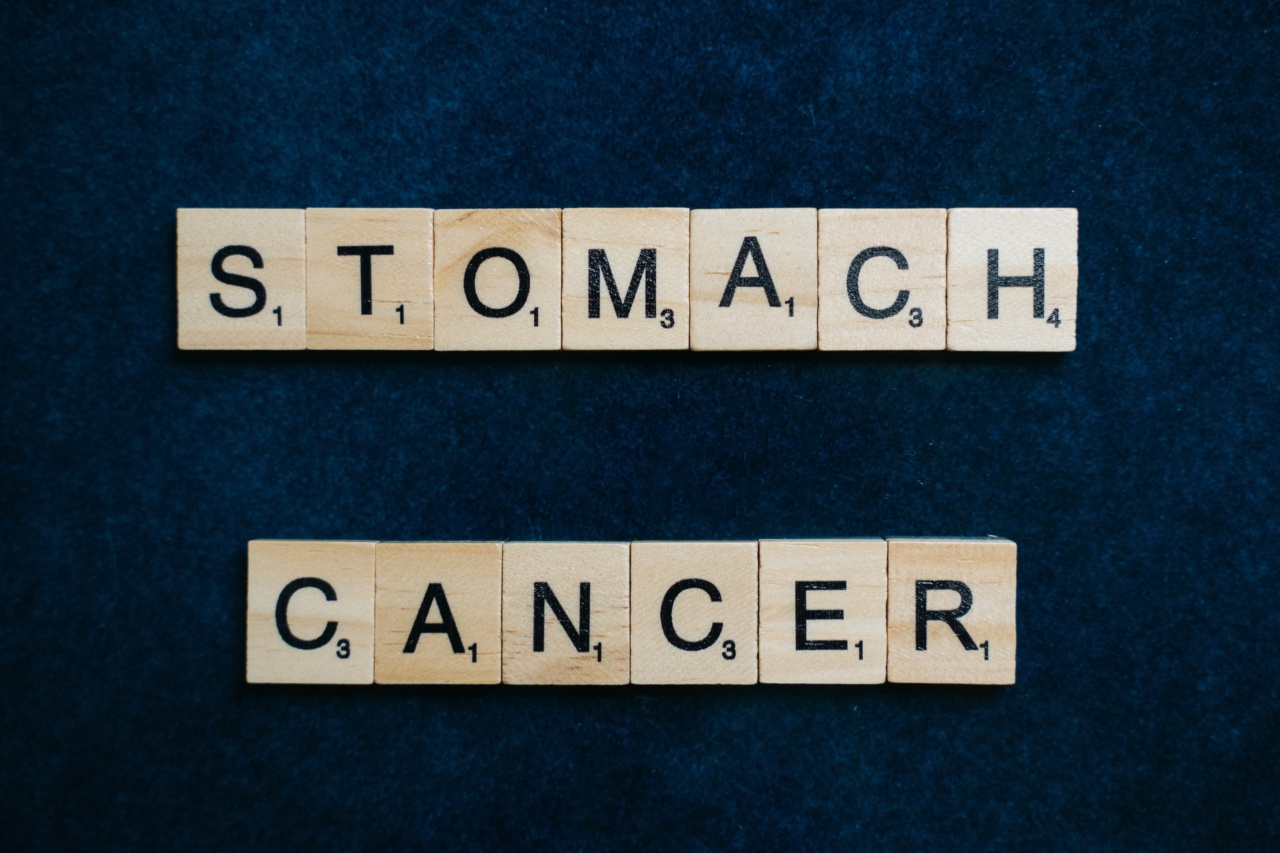Stomach ulcers are a common medical condition that affects millions of people worldwide. They are sores that form in the lining of the stomach, causing various symptoms such as abdominal pain, bloating, nausea, and vomiting.
Stomach ulcers can be caused by many factors, including bacterial infections, frequent use of medications such as aspirin and ibuprofen, and lifestyle factors such as smoking and alcohol consumption. However, recent studies have shown that stomach ulcers may have a potential link to cancer.
The Link Between Stomach Ulcers and Cancer
Researchers have found that people with stomach ulcers, particularly those caused by the bacteria Helicobacter pylori (H. pylori), have a higher risk of developing stomach cancer. H.
pylori infection is a common cause of stomach ulcers and has been linked to stomach cancer in several studies.
According to the American Cancer Society, people infected with H. pylori have up to a six-fold increased risk of developing stomach cancer compared to those who are not infected. H.
pylori infection is estimated to be present in half of the world’s population, making it a significant risk factor for stomach cancer worldwide.
How Stomach Ulcers Lead to Cancer
The exact mechanism by which stomach ulcers lead to cancer is not fully understood. However, it is thought that chronic inflammation caused by the ulcer and H.
pylori infection can damage the cells lining the stomach and increase the risk of cancer development.
In some cases, stomach ulcers can lead to the formation of a precancerous condition called gastric intestinal metaplasia (GIM). GIM is a condition where the cells lining the stomach transform into cells that resemble those found in the intestine.
This transformation increases the risk of developing stomach cancer, as the cells in the intestine are more prone to developing cancer than the cells in the stomach.
Symptoms of Stomach Cancer
Stomach cancer can be difficult to detect in its early stages as it often does not cause any symptoms until it has progressed to an advanced stage. Some of the symptoms of stomach cancer include:.
- Difficulty swallowing
- Nausea and vomiting
- Unexplained weight loss
- Abdominal pain and bloating
- Loss of appetite
If you experience any of these symptoms, it is important to speak with your doctor right away, especially if you have a history of stomach ulcers or H. pylori infection.
Early detection and treatment can greatly improve the chances of successful treatment and recovery.
Preventing Stomach Ulcers and Cancer
There are several ways to prevent stomach ulcers and reduce the risk of developing stomach cancer:.
- Practice good hygiene and wash your hands regularly to reduce the risk of H. pylori infection.
- Avoid using NSAIDs such as aspirin and ibuprofen or use them only under the guidance of a doctor.
- Avoid smoking and limit alcohol consumption.
- Eat a healthy, balanced diet that is rich in fruits, vegetables, and whole grains.
- Schedule regular check-ups with your doctor to monitor any changes in your health.
Conclusion
Stomach ulcers are a common medical condition that can have potentially serious consequences, including a higher risk of developing stomach cancer. If you have a history of stomach ulcers or H.
pylori infection, it is important to be aware of the potential link to cancer and take steps to reduce your risk. With early detection and treatment, stomach cancer is often treatable, so it is essential to speak with your doctor if you experience any symptoms or concerns about your health.





























